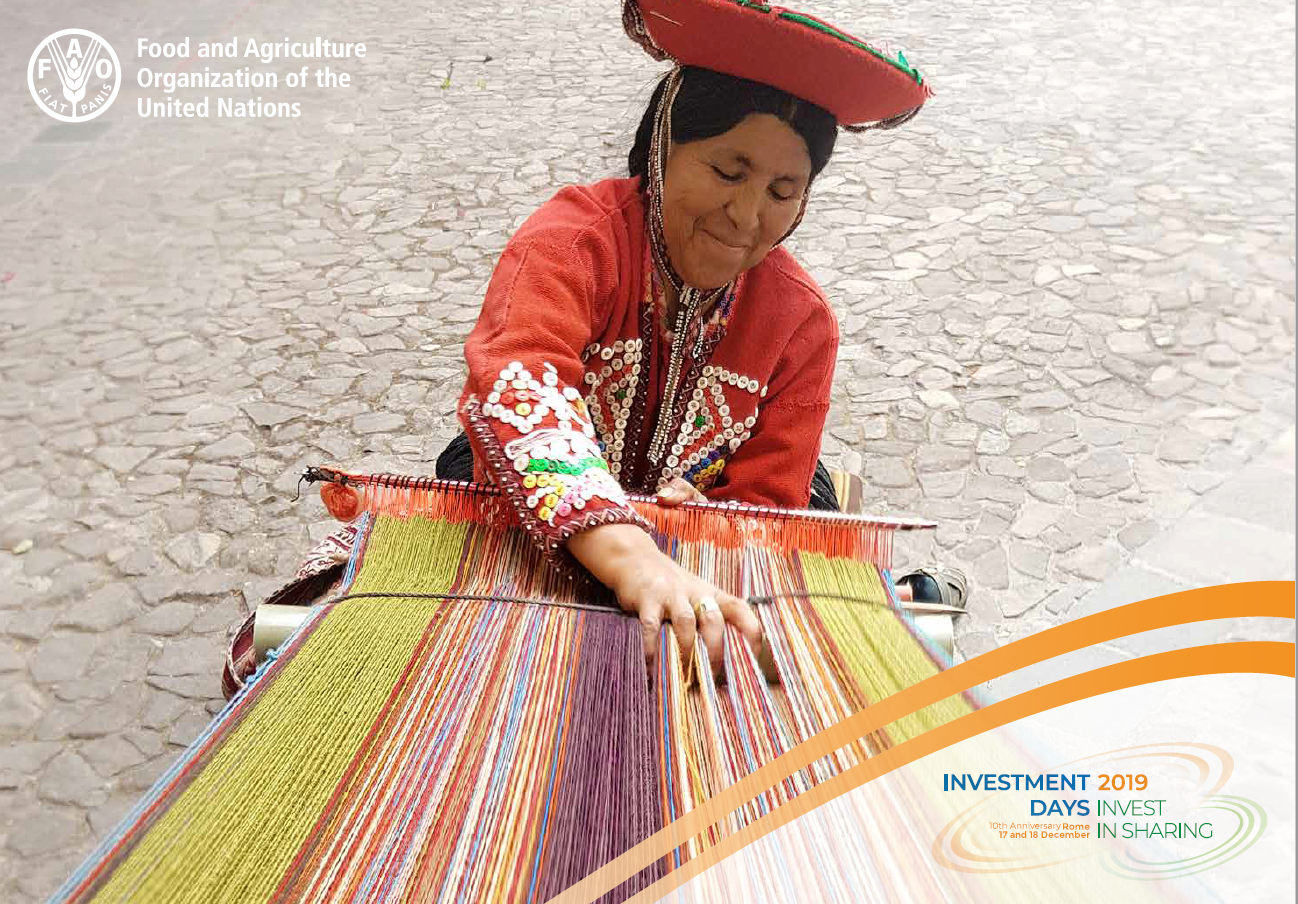Climate-smart food systems theme of tenth annual Investment Days

Healthy, more sustainable food systems took centre stage at the tenth anniversary of Investment Days, FAO’s annual knowledge-sharing event.
The two-day gathering in mid December brought together more than 160 FAO staff and partners from international financing institutions, the public and private sectors, farmer organizations and academia to share the latest thinking on investing in climate-smart food systems, this year’s theme.
In his opening remarks, FAO Investment Centre Director Mohamed Manssouri said that Investment Days was where “we see innovations of the day become investment solutions for the future.”
“The concept of food systems in itself is not new to us,” he added. “What is new is using a food systems approach that addresses all the critical dimensions of health, nutrition, food security, gender, youth, jobs, climate change, biodiversity and the environment from the local to the global.”
Greening the food system
Consumer demand, technological and social innovations and investments are helping to drive the shift toward healthier, greener and safer food systems.
Panellists explored how data on changing consumer preferences and emerging food demand patterns are shaping the food systems debate.
Growing interest in local, seasonal and organic foods is opening up new opportunities for small-scale farmers and artisanal fisheries and encouraging people to eat healthier, fresh and unprocessed foods.
Advisory services, like Carbon Trust, are helping companies reduce their carbon footprint, use resources more efficiently and transition to low carbon technologies.
During another session, panellists addressed the impact of accelerated climate change on food safety, namely the increasing threat of aflatoxin contamination on staple foods in East Africa. They discussed what that means for agricultural and trade policy, public health, private sector investment and the agricultural economy.
Sustainable livestock
Globally, livestock contributes to about 40 percent of the total value of agricultural output. It is an important source of food and income for millions of people worldwide.
But the sector is also a major greenhouse gas emitter. A roundtable of experts from academia, finance, development, health and nutrition discussed the challenges and opportunities for sustainable low carbon livestock development.
An innovative ‘information marketplace’ introduced participants to tools, investment projects and best practices for improving livestock productivity while also reducing emissions and integrating livestock into the circular economy.
The future of food?
The future of food is a hot topic with social, environmental and economic implications, including for small farmers.
Interest in alternative proteins is gaining steam, attracting the likes of investors, researchers, the media and consumers.
Feeding a global population expected to reach 10 billion by 2050 is a huge challenge. Alternative proteins could help meet those nutritional needs while also drastically reducing the emissions associated with traditional livestock activities.
One company, NextProtein, specializes in insect-based proteins for animal feed, while Mosa Meat is charting new ground with its cultured meat made from animal stem cells grown in a laboratory.
After sampling a selection of edible insect-based snacks, participants weighed in on the pros and cons of livestock-based proteins versus alternative ones using a lively debate format.
Innovations in climate-smart financing
Extreme weather events are increasing in frequency, leaving farmers struggling to cope.
Two sessions were devoted to climate-smart financing, including the role of agricultural insurance in strengthening farmers’ resilience and adaptation to climate change.
Panellists also discussed recent developments in financial products aimed at reducing greenhouse gas emissions, sustainable investment from the public and private sectors, ‘greenwashing’ and options for international financing partners and development partners to support climate finance and investments in mitigation.
Decade of Action
The UN has called for a ‘Decade of Action’ to deliver on the 2030 Agenda for Sustainable Development.
In line with this, FAO launched its ‘Hand-in-Hand Initiative’ encouraging partners across the public, private and other sectors to work together to end poverty and hunger and build prosperity in developing countries.
In his closing remarks, former FAO Deputy Director of Programmes Dan Gustafson commended the FAO Investment Centre on its “milestone tenth anniversary” of Investment Days and “its leadership role in promoting public-private partnerships.”
He noted the upcoming UN Food Systems Summit 2021 as one of the first major events of this Decade of Action.
“This reflects the key role food systems play in moving the world forward on a sustainable path,” he said.
“Food is at the centre of everything,” Manssouri added. “It’s the future of the planet.”
IDs 2019 Programme (click to enlarge)

